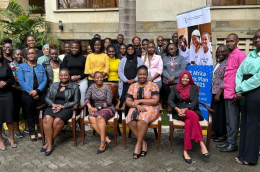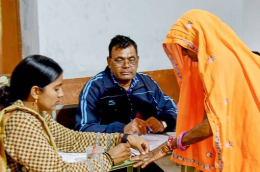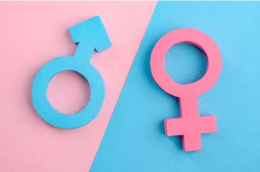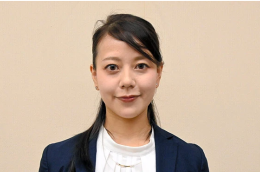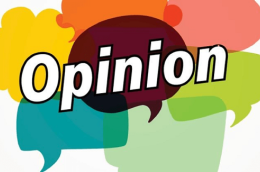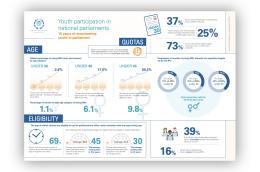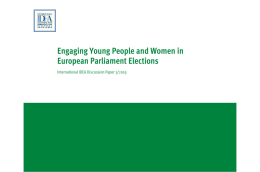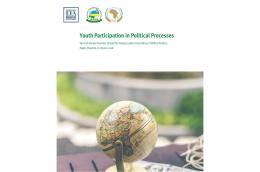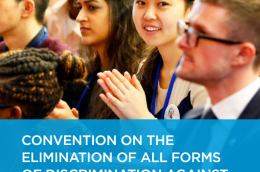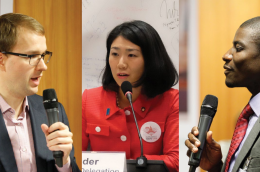Youth
Main navigation
Good morning.
Youth culture has long been associated with liberal or progressive thinking, protest and resistance. But the idea that the young are a homogenous group of lefty radicals has been challenged in a new study from King’s College London that suggests there is “an emerging gender divide” between young men and women.
The research is based on a representative survey of 3,716 people over the age of 16 and has revealed some stark differences on gender issues like the impact of feminism, terms like “toxic masculinity” and has even found that, in some cases, young men are no more supportive of gender equality than men in their 50s and 60s.
This report is part of a wider trend suggesting that gen Z (those born roughly between 1997 and 2012) are not necessarily as left leaning as many may assume. A survey conducted last year by Change Research found that young women in the US lean more politically left than young men, with 41% of women identifying as progressive in comparison to 24% of men.
Click here to read the full article published by The Guardian on 2 February 2023.
Image source: The Guardian
The training brought together 40 participants from various media houses, including female politicians, FAWE, International IDEA, FEMNET, and The Association of Media Women in Kenya (AMWIK) personnel. The main objective of the training was to establish a pool of journalists and social media influencers who are gender-responsive in their reporting and who will objectively report stories of women in politics.
Women in politics have been on the receiving end regarding media framing and agenda setting in the political arena because leadership is often believed to be a male function in the world today. The narrative is, however, changing with more women in Kenyacoming forth to vie for leadership positions.
Click here to read the full article published by International IDEA on 19 January 2024.
A major shift in India's electoral landscape is anticipated by the end of this decade. A report by the SBI has claimed that women voters in India will surpass male voters from 2029 onwards.
In the upcoming general election in 2024, the SBI report has projected a total voter turnout of around 68 crores, of which women voters could be at 33 crore (49%). From 2029 onwards, the women voters at 37 crores could be outstripping registered men voters at 36 crores, the SBI report said.
Click here to read the full article published by Mint on 14 December 2023.
Kenya has tried to bridge the gender divide in appointive and elective positions through legislation such as the two-thirds gender bill now failed several times. But there’s a new pandemic for young women in power, designated to scare them from rising, voicing their opinion and leading as per their constitutional mandate: Patriarchy.
However, patriarchy is not new and plagues even the mature democracies. Today, a woman would be sitting at the apex of power of a superpower but for patriarchy.
Granted, there are many reasons why a woman running for political office might not win an election. But patriarchy tops the list.
Click here to read the full article published by The Nation on 24 November 2023.
Despite lacking ties to this city and being described as a poor public speaker, a former social worker won an election here to become the youngest female mayor in Japan.
Shoko Kawata, 33, bested two other candidates on Nov. 12 to win the mayoral election in Yawata, a city of about 70,000 residents south of the ancient capital of Kyoto.
Kawata was backed by the ruling Liberal Democratic Party, junior coalition partner Komeito and the main opposition party Constitutional Democratic Party of Japan.
Click here to read the full article published by Asahi Shimbun AJW on 13 November 2023.
GENDER equality remains the fulcrum for good governance and a strong foundation for economic growth. Therefore, women’s inclusion will positively enhance Africa’s political, social and economic development. We must therefore create strong institutional policies, invest in education, technology, mathematics, as well as other soft skill to create solutions for future emerging challenges. Women have decided to push for the inclusion of African women and girls economically, socially and politically.
Click here to read the full article published by the Nigerian Tribune on 2 November 2023.

